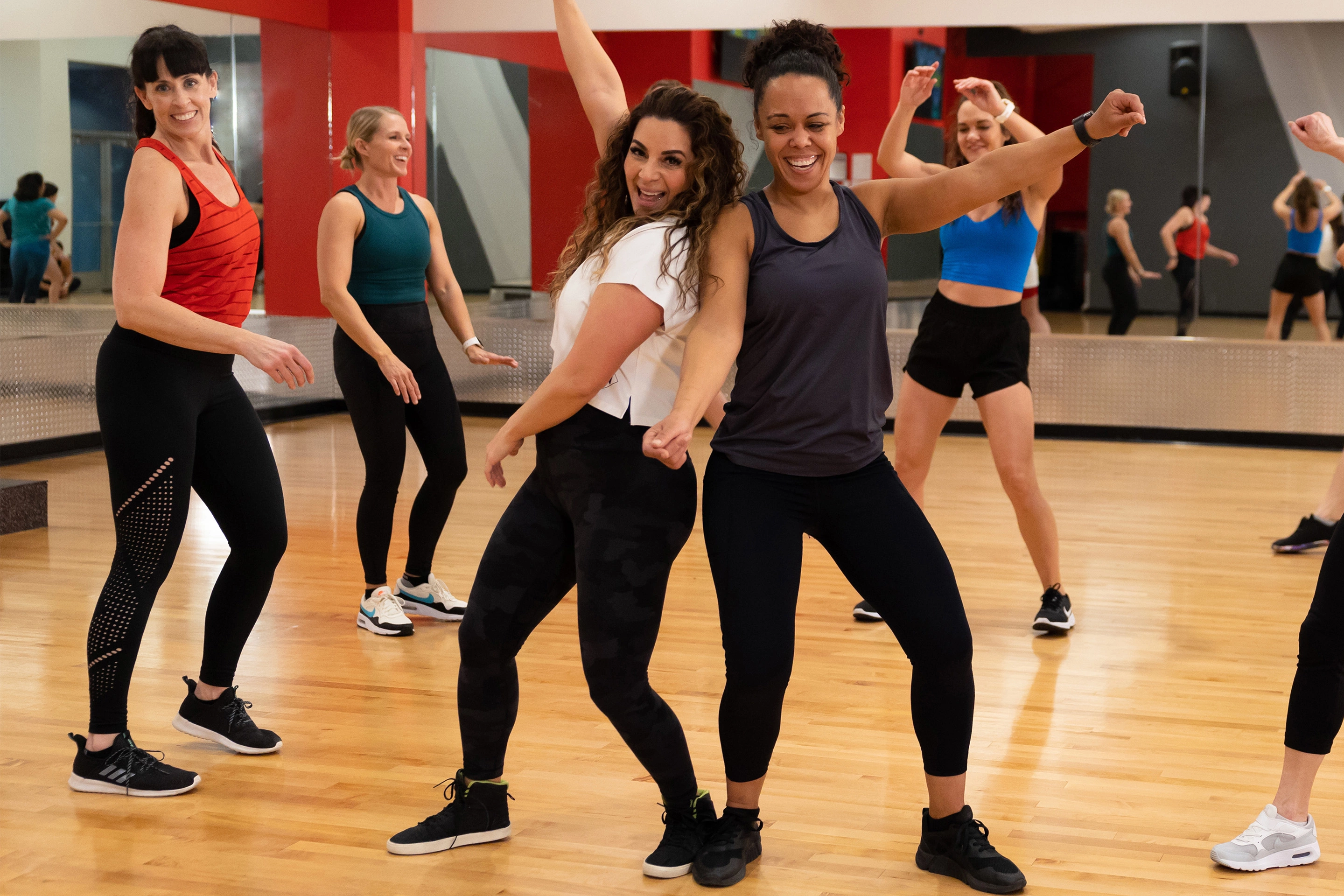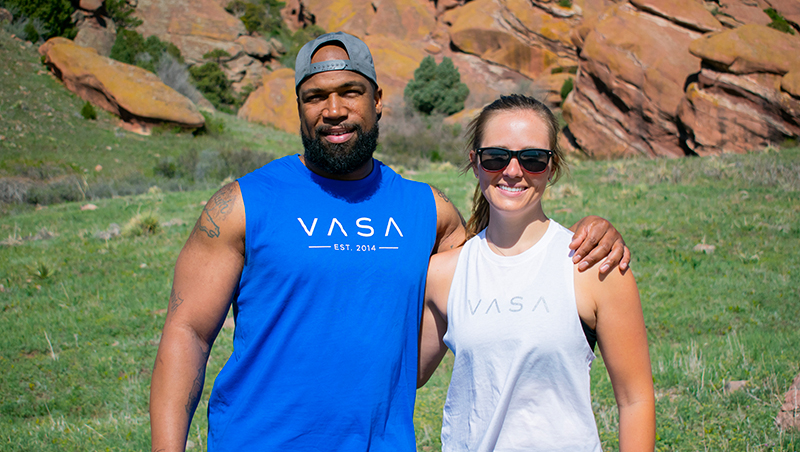The Health Benefits of Hiking Regularly
Quick Summary
Hiking can have powerful benefits for physical, mental, and social health. Regular hiking strengthens muscles, improves cardiovascular fitness, supports bone density, and helps with weight management, all while reducing the risk of chronic disease. It’s a lower-impact alternative to high-intensity workouts, making it accessible to people of all ages and fitness levels. Mentally, hiking reduces stress, boosts mood, sharpens focus, and improves sleep by combining exercise with time in nature. Hiking also builds social connection, creating opportunities to bond with friends, family, or groups.
This article covers the physical, mental, and social benefits of hiking, offers beginner-friendly tips for getting started safely, and highlights how to stay motivated long term. It also provides safety considerations, preparation essentials, and strategies for enjoying hiking as a sustainable lifelong exercise.
What it offers:
- Explains hiking’s role in improving strength, endurance, and cardiovascular health.
- Highlights disease prevention benefits, from lowering blood pressure to reducing obesity risks.
- Details mental health improvements, including stress relief, better sleep, and enhanced mood.
- Shares the social benefits of hiking, from building relationships to creating community.
- Provides practical safety and beginner tips to make hiking enjoyable and sustainable.
Who it’s for:
Beginner and experienced hikers, outdoor enthusiasts, and anyone seeking a low-impact exercise that improves overall health, reduces stress, and fosters connection with nature and others.
In addition to being a popular recreational pastime, hiking offers a variety of health benefits that make it a great way to improve both your physical and mental well-being. Now that it’s summer, head outside and experience the transformative power of nature on your overall health!

Physical Health Benefits of Hiking
Full-Body Workout and Muscle Strength
Hiking provides a whole body workout, engaging multiple muscle groups across the body, including the legs, core, and even the upper body as you scramble over rocks on difficult trails.
Climbing uphill or navigating uneven terrain, such as stepping over tree roots, challenges balance, coordination, and strength for a rigorous lower-body workout.
Over time, this leads to stronger muscles and greater endurance.
Cardiovascular Fitness
As a moderate-intensity aerobic activity, hiking elevates your heart rate and boosts circulation. This helps improve cardiovascular fitness to support heart health and strengthens the body’s ability to deliver oxygen efficiently.
Regular hiking supports better stamina for both daily activities and more demanding exercise.
In addition, regular hiking can help lower blood pressure for those managing hypertension.
Bone and Joint Health
Because hiking is a weight-bearing activity, it stimulates bone tissue and supports joint health. This helps increase bone density, which lowers the risk of osteoporosis.
Hiking on a steep trail provides greater physical impact and is even more effective for increasing bone density than walking along a flat trail, which offers less impact on your skeleton. The varied movements of hiking also build stability around joints, which can protect against injuries and promote long-term skeletal strength.
Weight Management and Calorie Burn
Hiking is a great way to burn calories, and it burns more calories than many other forms of exercise, making it an effective strategy for weight loss or weight maintenance. The exact calorie burn depends on terrain, pace, and body composition, but even moderate hiking contributes significantly to energy expenditure. Tracking calories burned can serve as extra motivation.
Regular hiking can help you lose weight by creating a caloric deficit, especially when combined with a healthy diet and balanced workout routine.
Lower Injury Risk Compared to High-Impact Activities
While hiking challenges the body, it poses a lower risk of injuries such as stress fractures and shin splints compared to high-impact activities like running. This makes it especially beneficial and safe for older adults or those returning to exercise after a break. But you’ll need to make sure it’s actually an activity that reduces stress on the body by choosing appropriate trails for your ability.
Improved Balance and Stability
Uneven hiking trails with roots, rocks, and elevation changes make hiking a balance-improving activity by challenging stabilizing muscles and proprioception. Using trekking poles and supportive hiking boots enhances stability and safety, especially for those with balance concerns. These benefits transfer to everyday movement and help reduce the risk of falls.
Disease Prevention and Management
Consistent hiking helps reduce the risk of chronic diseases by improving important health indicators, such as blood pressure, body weight, and overall physical and mental well-being. It lowers the chance of developing cardiovascular disease, heart disease, and stroke while supporting a healthy body weight.
Physical activity like hiking is also associated with a lower risk of colon cancer. Hiking can assist in managing conditions like obesity, type 2 diabetes, and hypertension.
Accessibility and Longevity
Hiking is accessible for people of all ages and fitness levels, with the flexibility to choose flat trails, challenging climbs, or something in between. For older adults, hiking encourages active living, helps in lessening dependence on medication, and fosters self-confidence.
Hiking allows individuals to progress at their own pace, making it suitable for all fitness levels and personal comfort. Its adaptability makes it a lifelong form of regular exercise that supports healthy aging and grows with you.
Mental Health Benefits of Hiking
Stress Reduction and Relaxation
Spending time in nature helps lower stress and calm the nervous system, providing a much-needed break from the stresses of everyday life. The peaceful surroundings and fresh air promote relaxation by reducing the body’s stress response and allowing the mind to reset. Being outdoors can also lead to a deactivated sympathetic nervous system, promoting deeper relaxation and improved overall health.
Practices like forest bathing, where you immerse yourself in natural settings, further lower stress and support recovery. According to the attention restoration theory, natural environments help with resting directed attention, allowing the mind to recover from mental fatigue and enhancing cognitive function.
Mood Enhancement and Endorphin Release
Hiking stimulates the release of endorphins, which elevate mood and help reduce symptoms of mental illness such as depression and anxiety. The combination of physical activity and natural scenery works as a natural antidepressant, leaving you feeling more energized and positive.
Engaging in nature-based activities like hiking can also increase self-acceptance, especially among middle-aged and older adults. Hiking supports psychological wellbeing by fostering mindfulness and reducing mental fatigue.
Improved Cognitive Function and Creativity
Regular hiking has been linked to sharper thinking, better memory, and improved creativity. Disconnecting from technology and engaging with nature gives the brain space to rest and recharge, which enhances focus and problem-solving skills.
Better Sleep Quality
Hiking can help you achieve a good night’s sleep by promoting deeper, more restful sleep. Time outdoors combined with physical activity helps regulate the body’s natural rhythms, making it easier to fall asleep and stay asleep through the night.
Connection with the Natural Environment
Being outdoors provides more than just exercise, it allows you to connect with the environment. Hiking in natural settings supports mental wellbeing by reducing anxiety, improving mood, and fostering a sense of belonging in the world around you.
National parks offer excellent opportunities for hiking and connecting with nature, making them ideal for families and individuals seeking these benefits.

Social Benefits of Hiking
Building Relationships
Hiking with friends, family, or groups fosters positive relations by encouraging social bonding and teamwork through shared experiences. Conversations on the trail and teamwork during more challenging hikes strengthen connections and deepen trust.
Sense of Community
Joining hiking clubs or participating in group outings builds a sense of community. Shared goals and experiences foster camaraderie and belonging, which enhances overall well-being.
Positive Social Support
The relationships formed through hiking provide emotional support, which helps reduce stress and improve resilience. Hiking together encourages accountability, consistency, and enjoyment, making it easier to maintain an active lifestyle.
Enhanced Overall Experience
Social interaction enhances the hiking experience by combining physical activity with meaningful connections. Sharing scenic views, challenges, and accomplishments with others creates lasting memories and contributes to both mental and emotional health.

Safety Considerations and Preparing for a Hike
Before embarking on a hiking journey, it is essential to prioritize safety and be adequately prepared. This includes wearing appropriate hiking gear, such as sturdy footwear and breathable clothing, and carrying essentials like a first aid kit, sunscreen, hat, rain jacket, snacks, and plenty of water. Planning and researching trails, understanding the difficulty level, and considering weather conditions is crucial for a safe and enjoyable hike.
Tips for Beginner Hikers
- Start with Easy Trails
- Choose beginner-friendly trails with well-marked paths and minimal elevation gain. This helps you learn the basics without getting overwhelmed.
- Build Up Gradually
- Begin with shorter hikes and slowly increase distance and difficulty as your stamina and confidence improve.
- Wear Proper Footwear:
- Invest in supportive hiking shoes or boots with good traction to reduce the risk of slips, blisters, or foot fatigue.
- Dress in Layers:
- Weather conditions can change quickly. Lightweight, breathable layers allow you to stay comfortable as temperatures rise or drop.
- Pack the Essentials:
- Bring enough water, energy-rich snacks, a map or GPS, sunscreen, a small first aid kit, and a fully charged phone. Even short hikes benefit from preparation.
- Stay Hydrated and Fueled:
- Drink water regularly and snack on trail mix, granola bars, or fruit to keep your energy steady during the hike.
- Hike with a Buddy:
- Going with a friend or group adds safety and makes the experience more enjoyable. If you hike alone, let someone know your plans.
- Learn Trail Etiquette:
- Yield to uphill hikers, stay on marked paths to protect the environment, and pack out all trash to keep trails clean.
- Check Weather and Conditions:
- Look up the forecast before heading out and be aware of trail conditions. Avoid hiking in severe weather or on unsafe terrain.
- Listen to Your Body:
- Don’t push beyond your limits. Take breaks when needed and turn back if you feel overly fatigued, dehydrated, or unsafe.
Staying Motivated While Hiking
Maintaining motivation is key to enjoying the long-term health benefits of hiking, which is a great exercise for both body and mind. Setting realistic goals, finding a hiking buddy, and tracking your progress can keep you engaged and excited about your next adventure. Hiking improves balance, bone health, and cardiovascular fitness. Celebrate the milestones, like when you complete a challenging trail!
Join a hiking group or connect with online communities to get encouragement and new trail recommendations. The physical benefits of hiking can help keep you motivated to continue. By staying motivated and committed to your hiking routine, you’ll continue to experience improved physical and mental health, lower stress levels, and a strengthened immune system and body.
Cross-Train & Meet New Hiking Buddies At VASA
When you need a break from the trail, cross-training provides additional physical exercise to support your hiking goals and helps improve your core muscles and leg muscles so you can go on that next big backpacking trip, or enjoy other outdoor exercise. Come train at VASA Fitness!
Not sure where to start, but want to have fun and meet new potential hiking partners? Check out boutique and group fitness classes near you now.
RECOMMENDED
SUBSCRIBE TO OUR BLOG
Enter your email to start receiving our blog emails!









